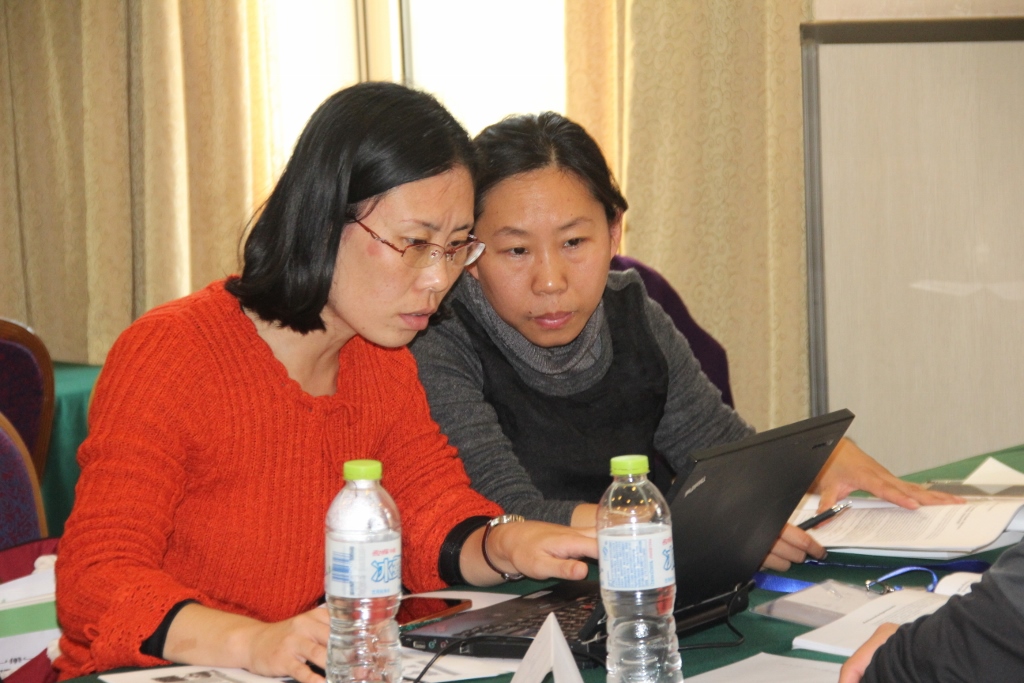Press and News Going to the root of the problem with forest genetic resources training - Apply now

Teaching forestry at an Asian university or training institution? Apply now for the Second Regional Training on Forest Genetic Resources in China, 18-22 September, 2017.
Teaching forestry at an Asian university or training institution? Apply now for the Second Regional Training on Forest Genetic Resources in China, 18-22 September, 2017.
Forest trees have high genetic diversity that is crucial for their survival, regeneration, productivity and adaptation, yet genetics is perceived as a difficult subject to approach and forest managers and conservationists are often not well aware of how it can help meet their own land-use objectives. This training course will help forestry lecturers understand what are the relevant genetic considerations for practical forest management, conservation and restoration, and provide them with tools to integrate these aspects in their teaching.
Organized by the recently established Asia Pacific Forest Genetic Resources Training Centre, the course will bring together forestry teachers and trainers from across the region. Twenty participants will be fully sponsored by China Happy Ecology, a company working in the field of ecological restoration. The training-of-trainers approach is specifically designed to help achieve widespread, long-term change in Asian forestry practitioners’ capacities to consider genetic aspects in their work.
The course is organized in collaboration with Food and Agriculture Organization of the UN (FAO), and contributes to the implementation of the Global Plan of Action on Forest Genetic Resources. In 2014, FAO’s State of the World’s Forest Genetic Resources Report highlighted how populations of many important tree species are declining due to a variety of threats. The alarming results led to the development of the Global Plan of Action as a call for governments, international organizations and others to respond before it is too late. However, lack of understanding of forest genetic resources among forest managers, conservationists and policymakers constrains conservation of tree species.
 Currently, tertiary forestry education curricula at universities and forestry colleges shows very limited or no coverage of forest genetics issues. Biology teaching may cover genetics but is often devoid of the social and practical realities that are so crucial for successfully managing species-diverse forests for both societal and environmental benefits in the region’s developing countries. As such there is lack of curricula and training that allow forest managers, conservation practitioners and other non-specialists to effectively integrate genetic conservation of tree species in forest conservation and management.
Currently, tertiary forestry education curricula at universities and forestry colleges shows very limited or no coverage of forest genetics issues. Biology teaching may cover genetics but is often devoid of the social and practical realities that are so crucial for successfully managing species-diverse forests for both societal and environmental benefits in the region’s developing countries. As such there is lack of curricula and training that allow forest managers, conservation practitioners and other non-specialists to effectively integrate genetic conservation of tree species in forest conservation and management.
The training course demonstrates the use of a Forest Genetic Resources Training Guide, developed by Bioversity International, as a flexible tool for teaching and learning about forest genetics issues in formal and informal education and on-the-job training. Targeting non-specialists, it uses real case studies to focus on the links between sustainable forest management and genetics, covering areas such as conservation strategies, trees outside forests, seed supply chains, forest management, forest restoration and logging. It has a global geographic scope and covers issues of practical relevance to local conservation and sustainable use of forest genetic resources.
Contact Riina Jalonen, Associate Scientist, Conservation and Use of Forest Genetic Resources, for more information.
Learn more | Apply now
NB: Registrations close on 16 June, 2017 and selected participants will be notified by in July, 2017.
The Asia Pacific Regional Training Centre on Forest Genetic Resources is a joint initiative by the National Forest Genetic Resources Platform of China, the Chinese Academy of Forestry, the Asia Pacific Forest Genetic Resources Programme (APFORGEN), the Asia Pacific Association of Forestry Research Institutions (APAFRI), Bioversity International and China Happy Ecology Industrial Ltd., a private company working on tree breeding and ecological restoration. Partnering organizations are grateful to China Happy Ecology for their generous support that made possible the establishment of the Training Centre.
Photo 1: Dusk at Danum Valley, Malaysia. Credit: CIFOR/M. Edliadi; Photo 2: Participants of the First Regional Training on Forest Genetic Resources. Credit: Bioversity International/R. Jalonen
